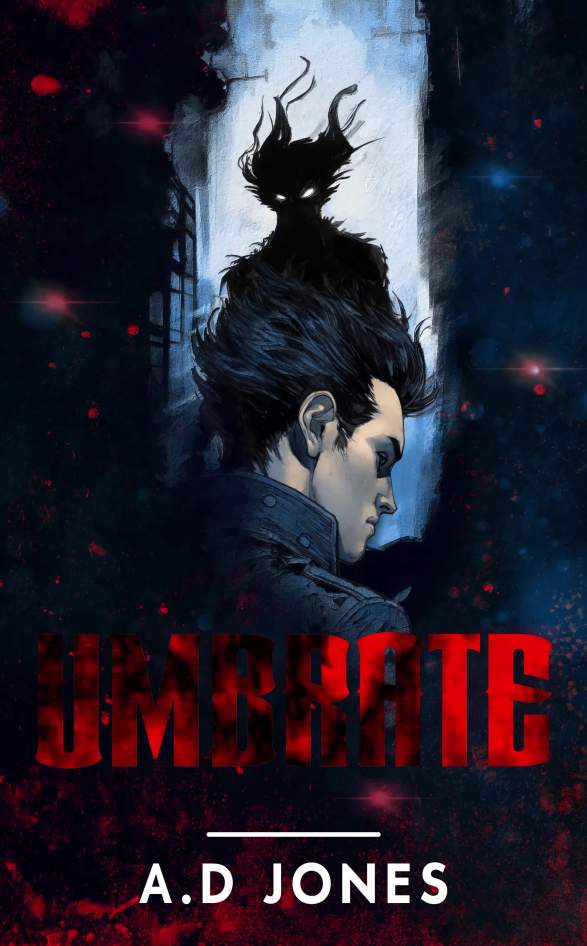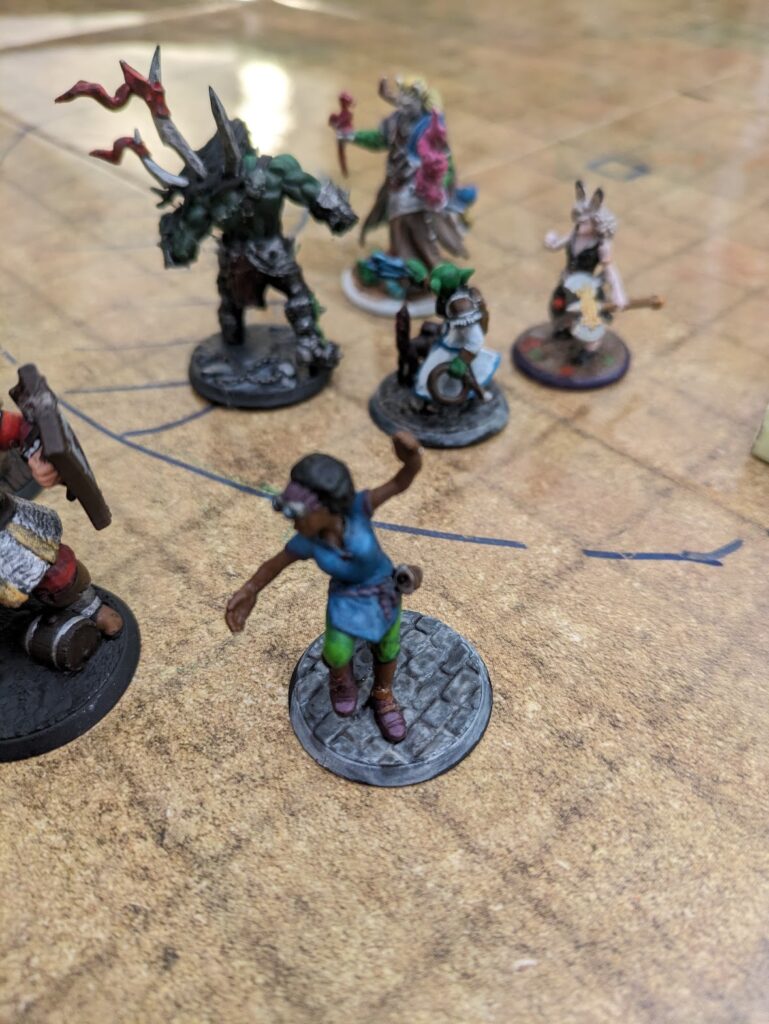My honest review of A.D. Jones’ Umbrate

The dream of many Dungeons And Dragons player, game master or normal party member, is to write a book based on a campaign. On the other hand, pretty much everyone knows it’s a terrible idea: the campaign is perfectly narrated by the totality of the party rather than by a single narrator.
What makes many DnD campaigns great, and that drew me in as a player a few years ago, is how the story emerges from the ideas and actions of all the party member, meshed together with the guidance from the game master and a bit of sheer luck when rolling dices. Because yes, I think I need to confess a capital sin in the world of the Dungeons and Dragons addicted: I’ve never been a true high fantasy fan. I’ve never read nor watched anything based on Tolkien’s books (if we exclude a brief unsuccessful try with The Hobbit back when I was in high school), and to be honest I’m not very fond of the sort of creature you find in the typical DnD campaign.

I don’t care about the majority of the lore, or whether certain class features were downplayed with respect to how they were in version 1 or in 3.5. But I love roleplaying: the idea of being a part of the story someone is telling, and knowing that both the fun in playing it and the outcome of the mission at hand depend on me is something that keeps me engaged and that makes it actually funny to play with my friends. It makes me forget that I’m surrounded by elves, orcs and other such creatures.
Once again, I’m writing too much, but I wanted to explain why A.D. Jones’ book Umbrate really made an impression on me as I read it. And it only took a few paragraphs.
Umbrate
Since the first pages you clearly see a bit of the turn-based dynamic every role-player knows well, and the best part was that it didn’t get in the way of the story being told. Rather than feeling like that interminable moments when the entire party is waiting for the warlock to decide which spell to cast, it felt like those fight scenes in action movies when the focus moves seamlessly between all the people involved in the fight. And it holds true for the final show down in the shopping mall.
It’s so easy to get lost when multiple characters are involved in a fight at the same time, but that wasn’t the case in Umbrate.
At the beginning of the story I wasn’t very fond of Van, with all his biases and stereotypes about the umbral people. This aspect of him, though, left a lot of space for his personal improvement in that sense throughout the rest of the book. And it was good to see it happen even though the bad guys ended up being umbral: so many other “dark people” contribute to break Van’s prejudices while they’re all trapped in the mall, and rather than a systemic thing, the trap is motivated by a twisted feeling of obsession and revenge.
Even though I find it hard to imagine holding such a grudge for such a long time, I appreciated the bad guys motivations to be so extreme and not justifiable in the least. As much as I’m a huge fan of complicated and relatable baddies, it felt refreshing to see an example on unredeemable character: it’s something we don’t get to experience much anymore in modern stories.
Perfection is overrated
My review wouldn’t be complete if I didn’t find some minutia to complain about, would it? I already stated how Van didn’t exactly start as one of my favourite characters ever, but that has never really stopped me from enjoying a well-told story.
Let’s nitpick for real, shall we?
Well, if there’s something that I didn’t fully understand is why the flashback was presented so close to the end of the book. I think a more subtle introduction and motivation as to why Van is so prejudiced would have helped the story more. Hearing it from his own voice was good and helped me make my own idea about him, but that flashback just before the reveal felt a bit abrupt.
Not abrupt enough, though, to ruin my enjoyment of Umbrate. If I used to bite my nails, I’d surely have done it through the entire second half of the book. There were so many characters I had come to care about, and I was so curious to see how the situation was going to be resolved.
Conclusion
If you’ve ever enjoyed at least a role-playing game session, then you should definitely read this book. Especially if you, like me, are tired of the hard fantasy setting of the classical DnD campaigns.
If you’ve never role-played, then, I can’t think of a better way to get in touch with it than a novel that feels like a role-playing game campaign (which to me is still hard to believe, by the way).
Be First to Comment